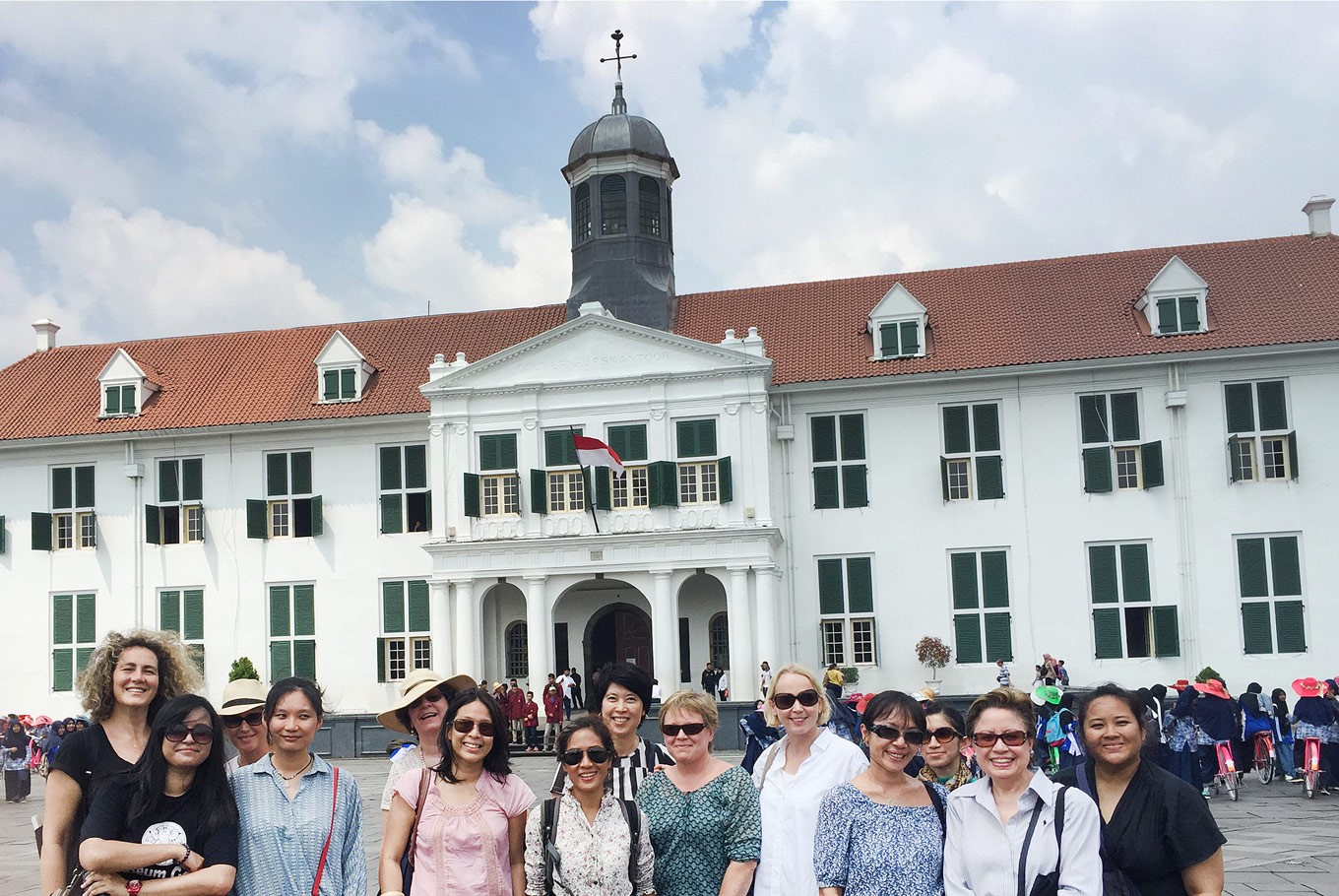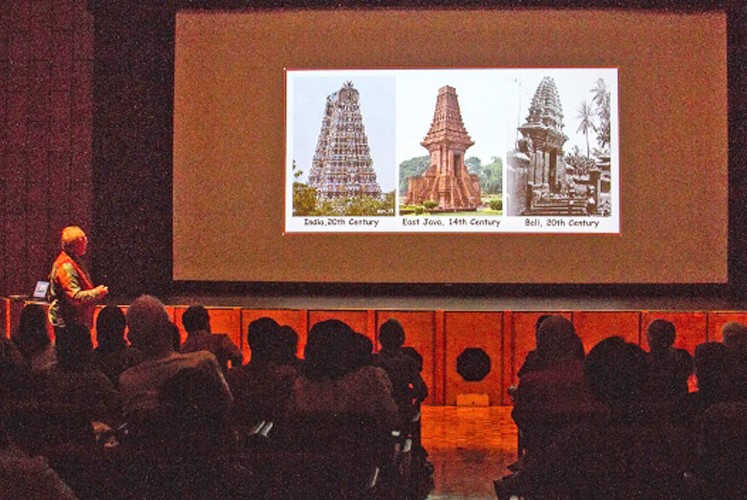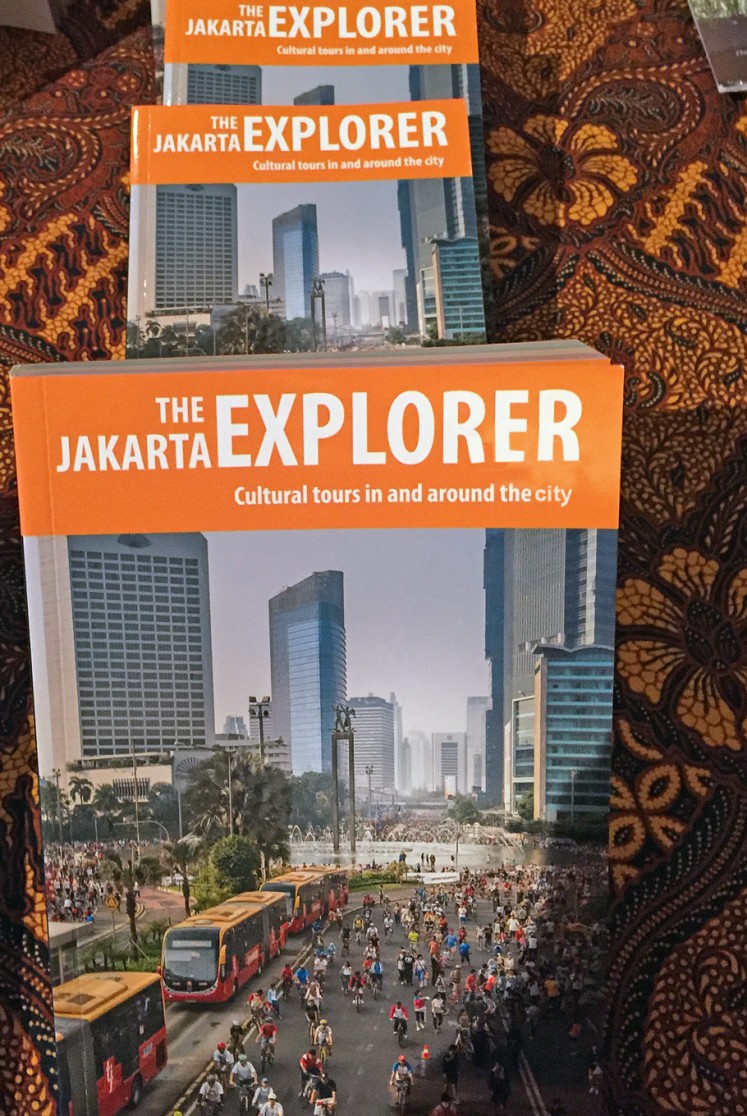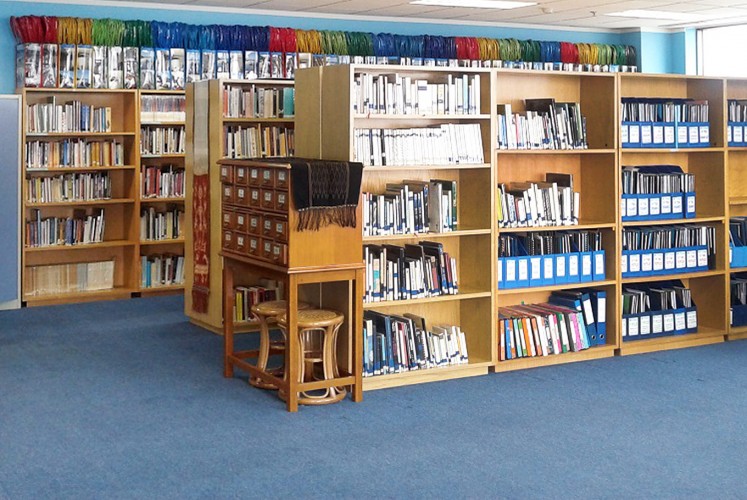Popular Reads
Top Results
Can't find what you're looking for?
View all search resultsPopular Reads
Top Results
Can't find what you're looking for?
View all search resultsThe Indonesian Heritage Society: Opening the door to cultural curiosity
Change text size
Gift Premium Articles
to Anyone
F
or someone who is a complete stranger to a foreign country, taking that first step toward assimilating into its culture can seem daunting.
For those who have the desire to develop a deep understanding of Indonesia’s culture and traditions, Indonesia has several organizations that cater to the curiosity of newcomers.
None are larger or more experienced than the Indonesian Heritage Society, which has for 47 years been welcoming expatriates and locals looking to explore the diverse archipelago’s traditions and cultures.
Indonesian culture is underrated in the sense that the country has not reached mainstream recognition in the global eye, even despite its tremendously vast cultural offerings, both traditional and contemporary.
Currently, the society has 640 members, most of whom are expats from 40 nations, including France, Italy, Japan, South Korea and the United States. There are also over 100 Indonesian members, with more hoping to join.
“In the 1970s, the society was started by a group known as the Ganesha Volunteers and in 1995, it was renamed the Indonesian Heritage Society. These volunteers were very interested in Indonesian culture and started to work collaboratively with Jakarta’s National Museum. That initial partnership, which still continues to this day, sowed the seeds to what became the Indonesian Heritage Society today,” the society’s president, Isla Winarto, said in a recent interview.
Mainly, the cultural activities include museum tours with members who are trained as guides by the Indonesian Heritage Society or have become experts in the material.
Deeper understanding: An evening lecture in the Erasmus Huis in South Jakarta, which is a part of the English-language lecture series. (Indonesian Heritage Society/File)The society’s long-running partnership with the National Museum in Central Jakarta and with the Indonesian Textile Museum in Petamburan, West Jakarta, focuses on a variety of areas, including translating and updating catalogues, helping to label artifacts and textile conservation.
Winarto said that the partnerships with museums provided an excellent starting point for the introduction and deep recognition of Indonesian history and traditional culture.
Over the years, the society’s activities and topics of interest branched further to cater to other cultural interests such as literature, art and the general exploring of Jakarta.
“From there, we started to branch out because we understood that not everyone was interested in prehistory. From their experiences as members of the society, many of our members returning to their home countries have helped disseminate information about Indonesian culture, which is a marvelous thing as it helps to develop a greater interest in this wonderful country,” Winarto said.
Read all about it: The Jakarta Explorer is a book about the capital city, compiled and published by the Indonesian Heritage Society. (Indonesian Heritage Society/File)Other activities, such as daytime events on topics such as batik, literature and traditions, are held, often at the nonprofit organization’s office on the 17thfloor of the Sentral Senayan I building in Senayan. Evening lectures are open to the general public and are held monthly by the Dutch Embassy at the Erasmus Huis in Kuningan, South Jakarta.
Social gatherings usually take place at the residences of members, while the Rumahku program involves talks and engaging presentations on Indonesian topics. Groups of nationalities tend to organize events in their own language, such as Japanese, Korean, Italian, French and Mandarin.
With events that are typically scheduled during the day and that are often tradition-oriented, Winarto admitted that a current challenge for the society was on getting young people and professionals involved. With evening events, she said, heavy traffic during rush hour was a problem.
Nevertheless, as with many independent cultural organizations, the society is kept alive mainly by the will of its volunteers who, aside from being members, take on leadership roles in running the activities.
Greater choices: The Indonesian Heritage Society's library at Sentral Senayan I building, 17th floor. (Indonesian Heritage Society/File)The group’s events are not only for members. The annual welcoming event, held this year on Sept. 13th, is open to the general public. This is a time when many expats return to Indonesia after the western world’s summer break. The upcoming Selamat Datang (Welcome) event, to be held at the Erasmus Huis, is the public’s main chance to familiarize itself with the society and its activities before deciding whether to become a member.
The society has received positive responses from expats, Winarto said, adding that, even among those who have left Indonesia for good, she has been told that learning about Indonesian culture through the group has been one of the best experiences of their lives.
“A compliment like that is very valuable to the society. We just feel that we can offer so much, and to know that people out there are recommending the society to one another and sharing Indonesian culture […] abroad is fantastic,” she said.
“People feel they have a greater affinity for Indonesia when they have a deeper appreciation of its history, customs and traditions, and feel empowered when they have this knowledge. This is so important both for them and Indonesia.”














